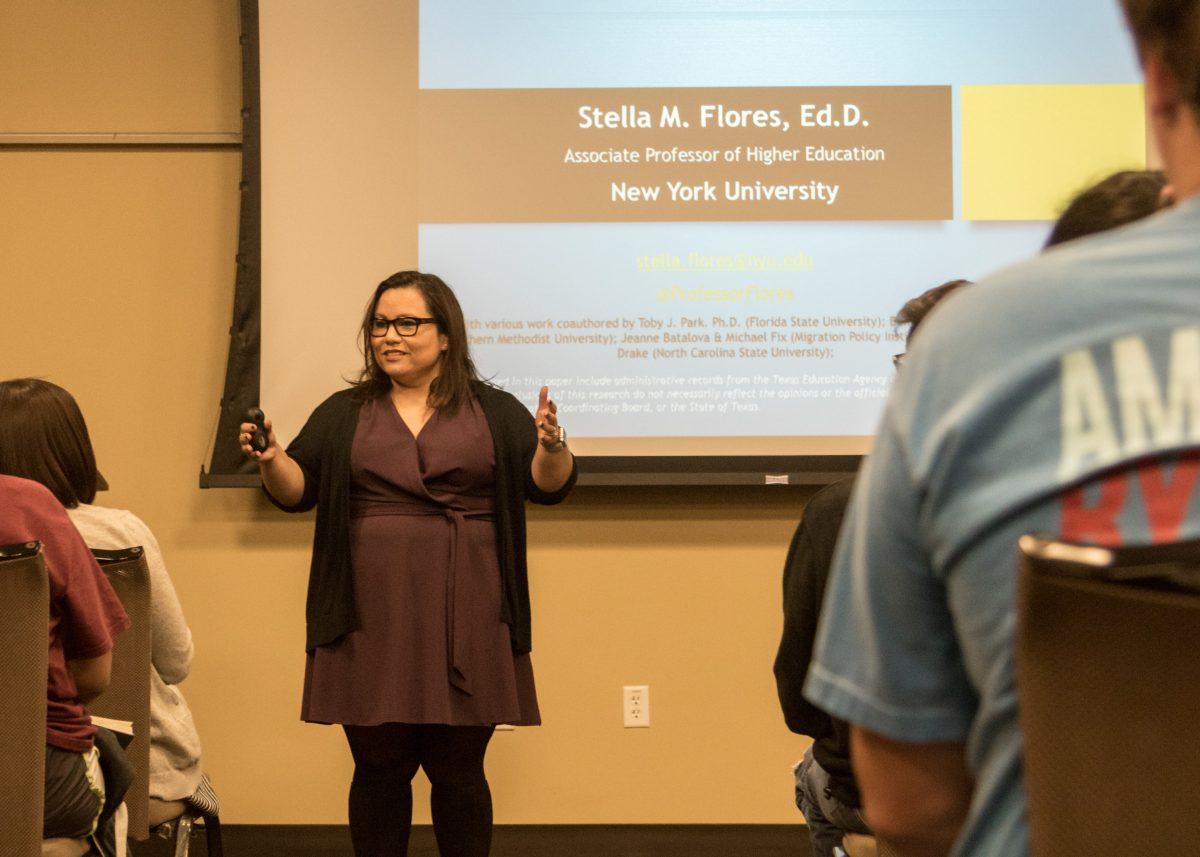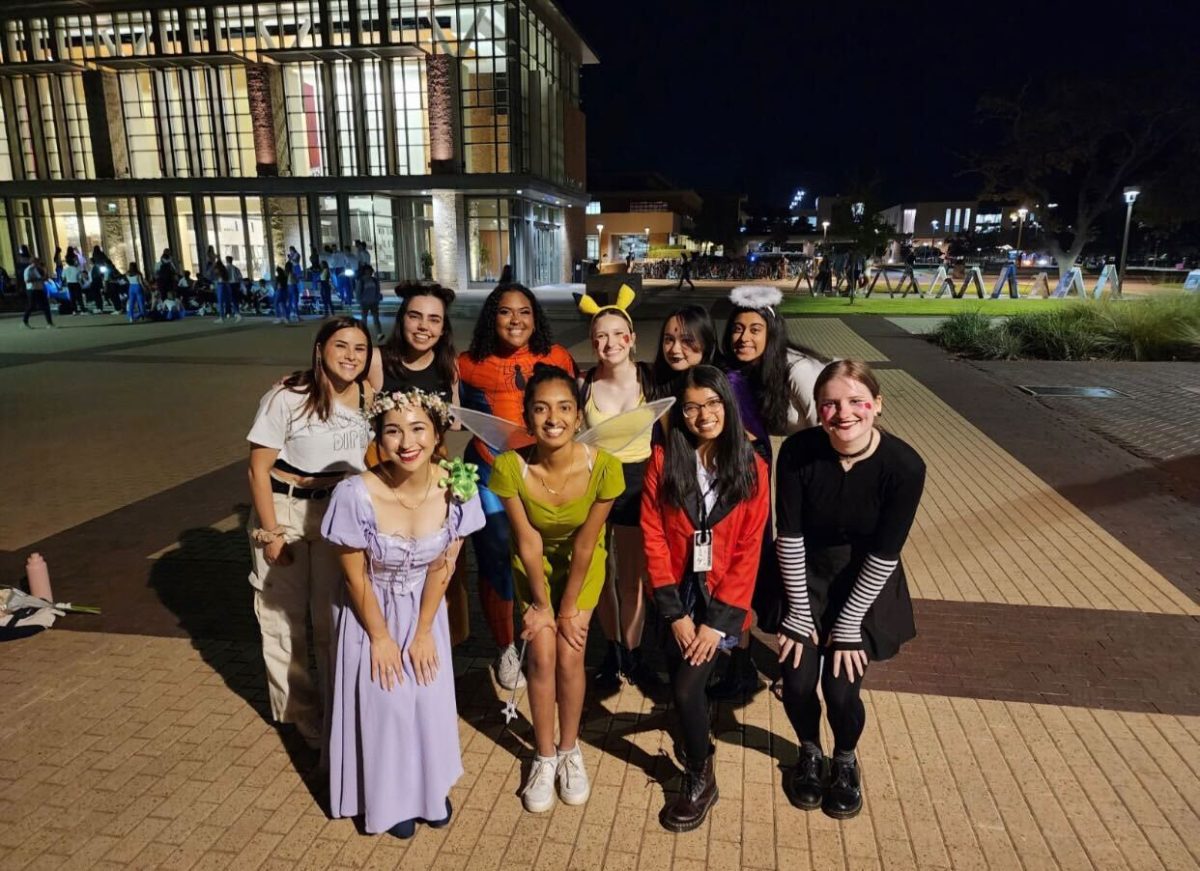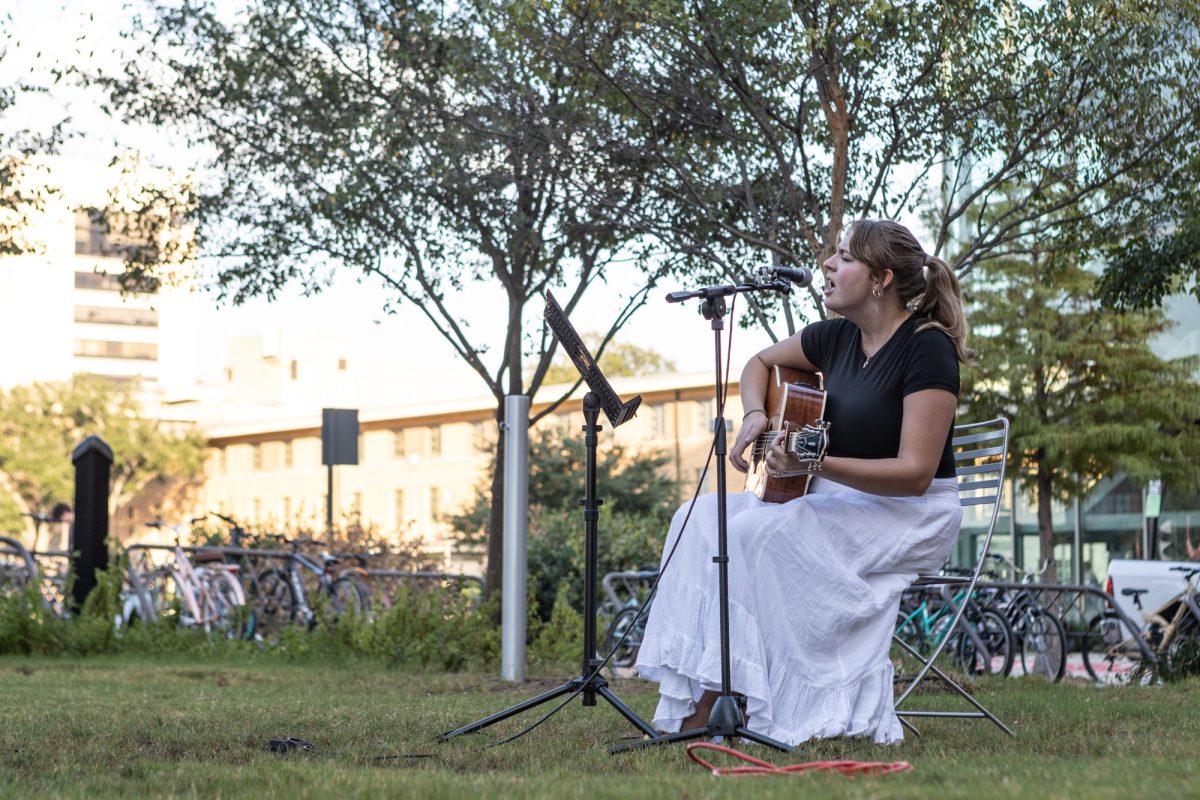Does where you attend high school determine whether you will attend college? Does where you attend college determine whether you will actually complete your degree?
These are the questions Stella Flores of New York University discussed as related to Latino students at the event “Race, Income, Language and Wages: Does where you go to college matter (to Latinos) in Texas?” on Tuesday, Nov. 7. The event was organized by the MSC Student Conference on Latinx Affairs (SCOLA) and Texas A&M’s Carlos Cantu Endowment, frequent collaborators on Latinx Affairs events.
Kimberly Bosquez, international studies senior, is the Chair for SCOLA, one of the 19 organizations under the MSC umbrella. The organization coordinates a conference every spring semester that brings together students and leaders from different sectors in the workforce to discuss issues related to the Latino community.
Bosquez said she felt this topic is important because of the obstacles which keep many Latino students from attending university, or completing their studies at university.
“A lot of Latino students that come to college in Texas are going to be first generation students, which means that they don’t have any parent that has come through the university system. In addition, income is going to be a big deal because a lot of them are going to need more financial aid,” Bosquez said. “In addition to language, a lot of them come from Spanish-speaking communities and Spanish-speaking homes, and especially when they come to A&M, it is very much a culture shock.”
Flores, the speaker for the event, grew up in Texas and received her doctorate in Education from Harvard University. Now the Director of Access and Equity at the Steinhardt Institute for Higher Education Policy at NYU, her research focuses on how state and federal policy affects underrepresented populations’ college access and completion rates.
Both of Flores’s parents grew up in agricultural working families but managed to obtain university degrees despite their disadvantages. She said her family history is the motivation for her research.
“My parents during this era were still able to go to college because of financial aid programs, and miraculously given their income status graduated from college, and my mom even got her master’s degree,” Flores said. “That meant for us, her kids, we didn’t have a reason not to succeed. We never had to work in the fields, and we had different circumstances, but this is what gets me up in the morning.”
Apart from her family background, Flores said the recent population increase of Latino students in the U.S. makes it crucial for the State and Federal governments to implement policies that meet those students’ needs.
One projection Flores shared during her lecture showed that between 1995 and 2025 the Hispanic population in the U.S. will have increased from nine percent to 25 percent, nearly tripling. In Texas, she said Latinos are already the majority student population in public schools.
“If we fail Latino students, we are failing the majority of the education system; we cannot afford to fail Latino students,” Flores said. “Imagine a world in which the majority of all your students can’t graduate high school or even enroll in college or graduate from college. It’s going to destroy your economy.”
One way the government can more effectively serve the Latino student population is by recognizing the importance of Hispanic Student Institutions (HSI). Flores said these are institutions that receive federal funds to assist Latino students, especially those from low-income backgrounds.
Luis Ponjuan, associate professor in the Department of Educational Administration and Human Resource Development said A&M may become a de facto HSI because of its large Latino student population.
“After you reach 25 percent of your student population, then you are considered an HSI, and you have access to funds, to help address those issues, because there are federal funds associated with that,” Ponjuan said. “That’s the larger question about, what can A&M do to really make a difference in creating a higher odds for a Latino to come here and complete.”
Investing in Latino student population
November 10, 2017
Photo by Photo by Kevin Chou
Stella M. Flores, associate professor of higher education at New York University, spoke about how the rapidly increasing Hispanic population in the U.S. effects individuals getting accepted to and graduating from college.
0
Donate to The Battalion
Your donation will support the student journalists of Texas A&M University - College Station. Your contribution will allow us to purchase equipment and cover our annual website hosting costs.









